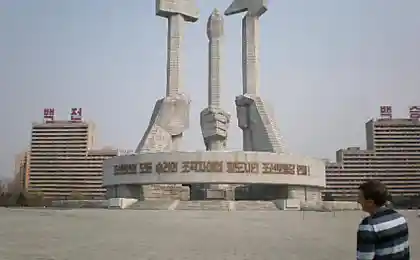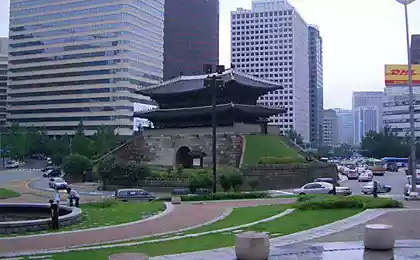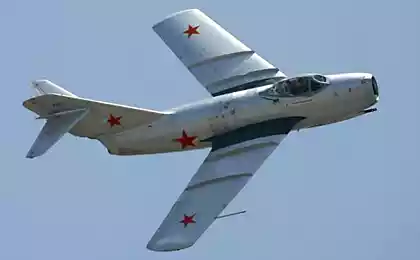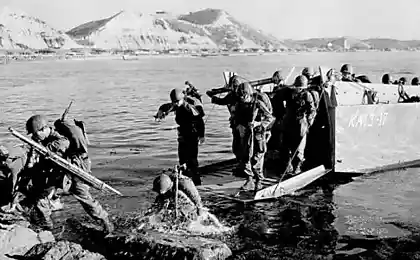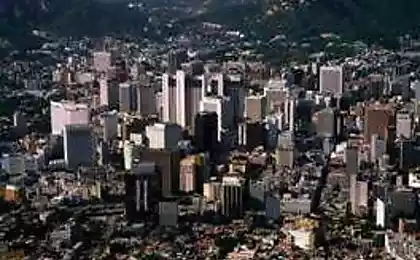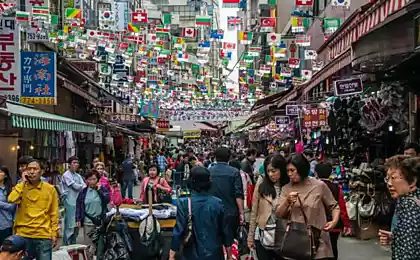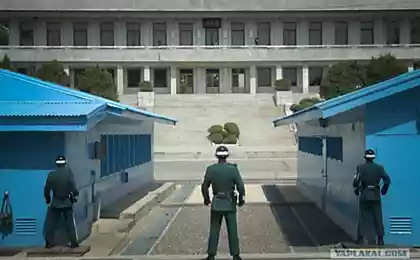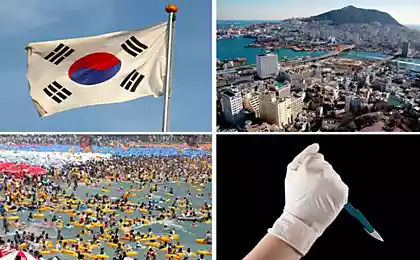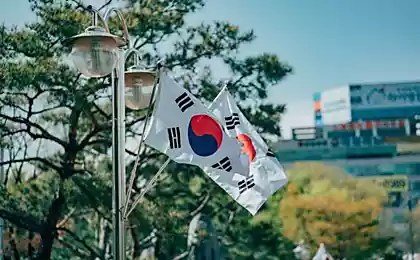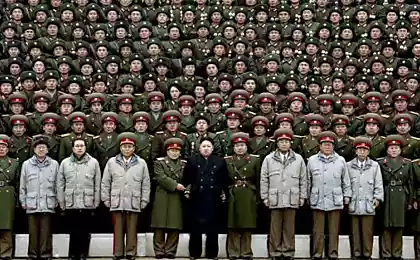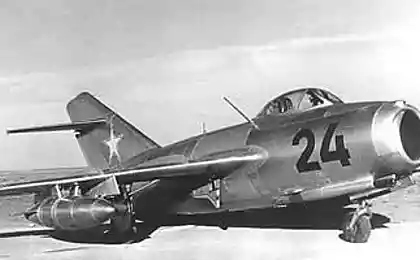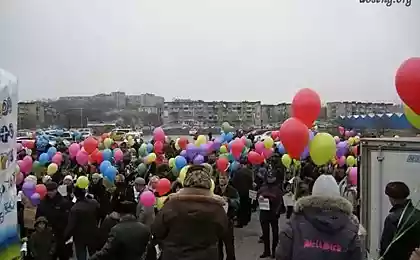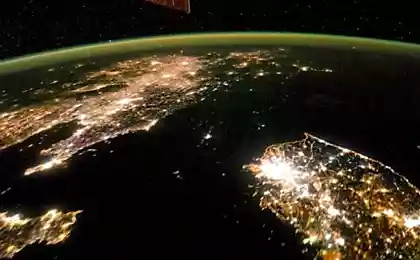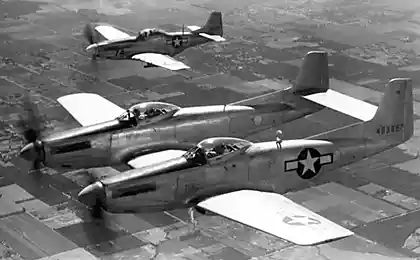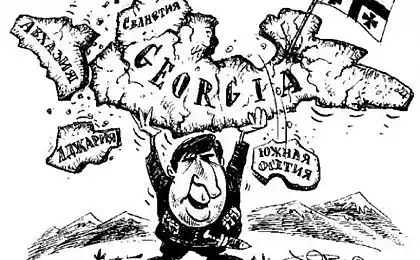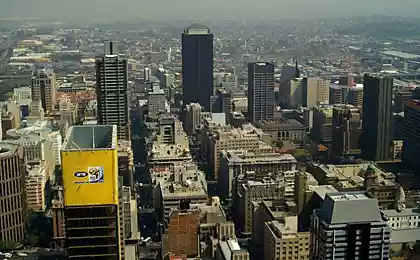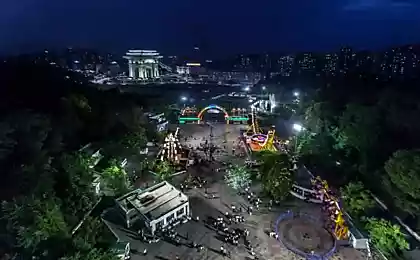1563
In South Korea has passed the action with balloons
Yesterday, January 12, the South Korean activists campaigning for the rights of North Korean citizens and unification of the country, held another protest near the demilitarized zone, to cut the two Koreas. In the Korean city of Paju (Paju), located 51 kilometers north of Seoul they spent launching balloons loaded with leaflets and sweets, which are intended for their northern neighbors.
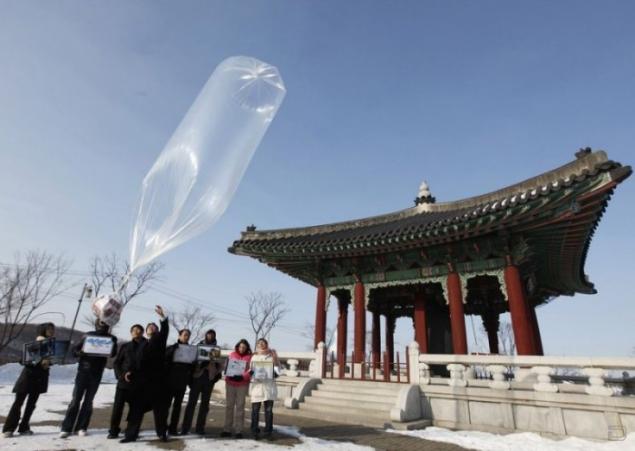
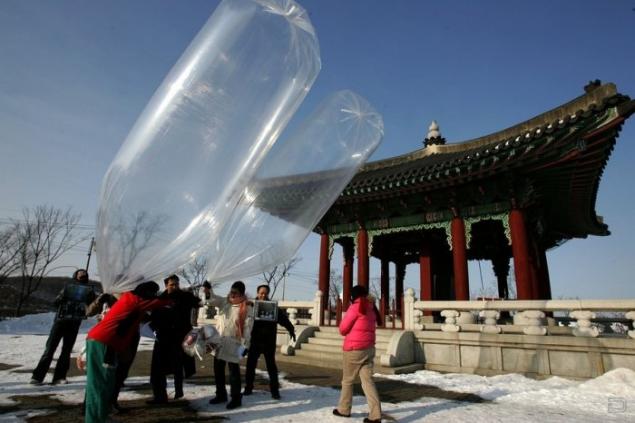
Activists have launched into the sky balloons filled with leaflets and confectionery. (Reuters)
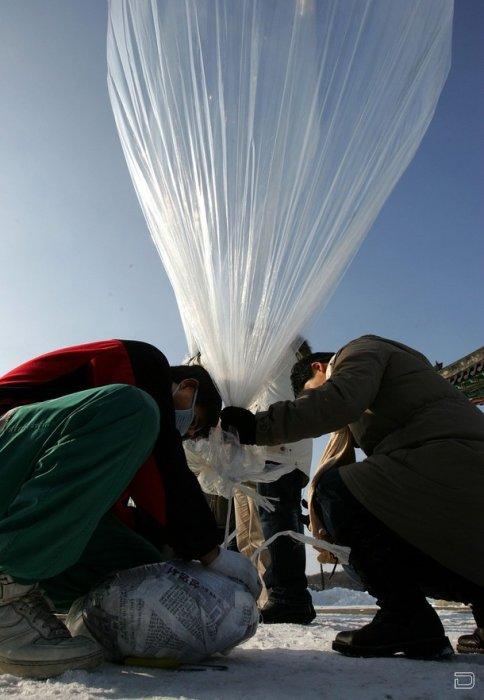
The action participants were encouraged to "unite the two Koreas and put an end to the genocide of the North Korean people» (Reuters)
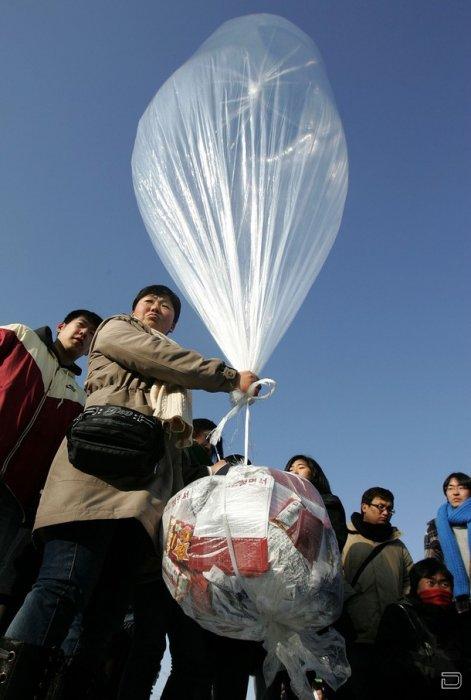
Such actions are carried out in the area of the demilitarized zone on a regular basis, causing great discontent in the ruling circles of North Korea. (Reuters)
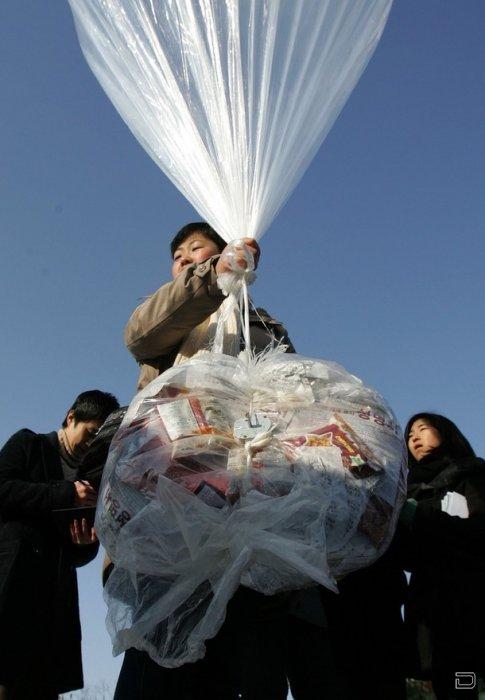
North Korea requires Seoul not to run balloons that a number of South Korean NGOs regularly sends to North Korea. (Reuters)
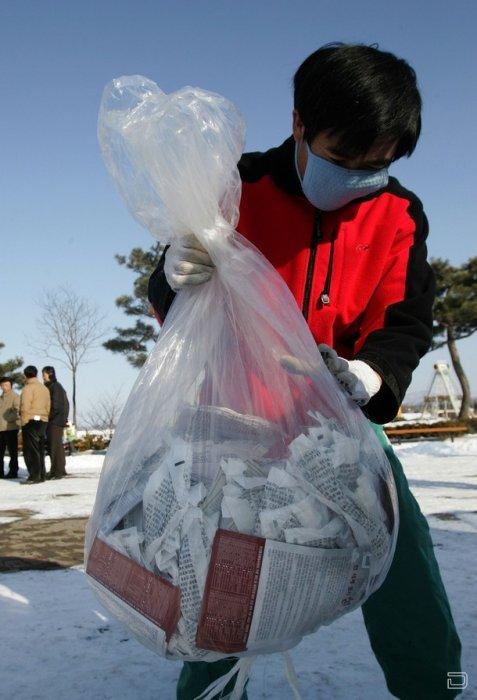
With these balls fall to the north, hundreds of thousands of propaganda leaflets. In them - a sharp criticism of the policies of the DPRK leadership, calling for the overthrow of Kim Jong Il and a detailed list with the names of nearly 500 citizens of South Korea, which is believed to be at different times have been abducted by the authorities of the DPRK.
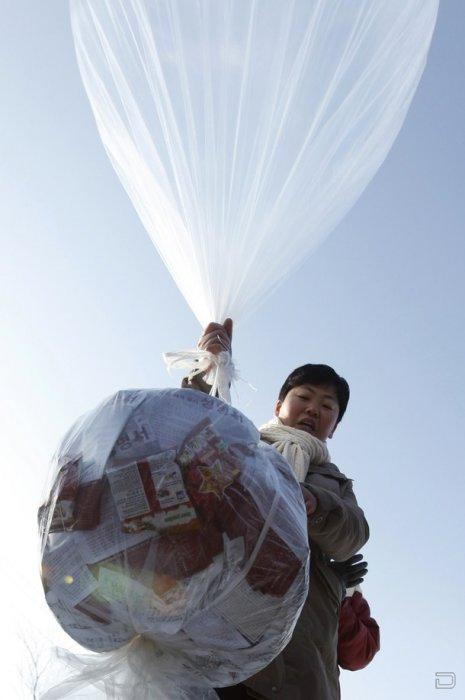
Late last year, the North Korean newspaper "Chosun Mingzhu" clearly hinted: spreading leaflets can cause "random" armed clashes on the inter-Korean border, which may result in a full-scale military conflict, including nuclear war.
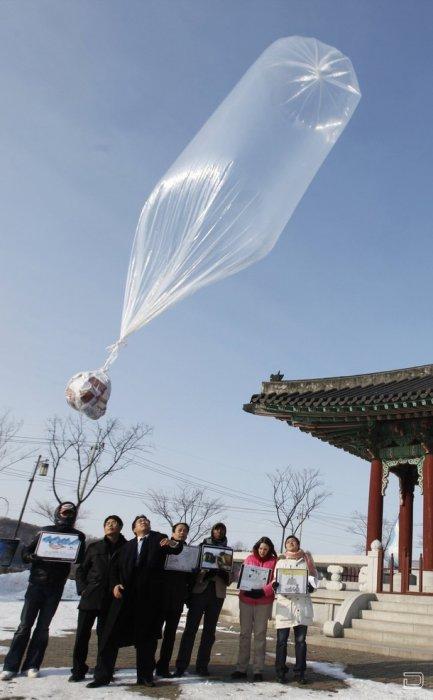
Ministry of Unification of the Republic of Korea has asked civil society organizations of the South not to throw leaflets into North Korea. But they did not heed the request.
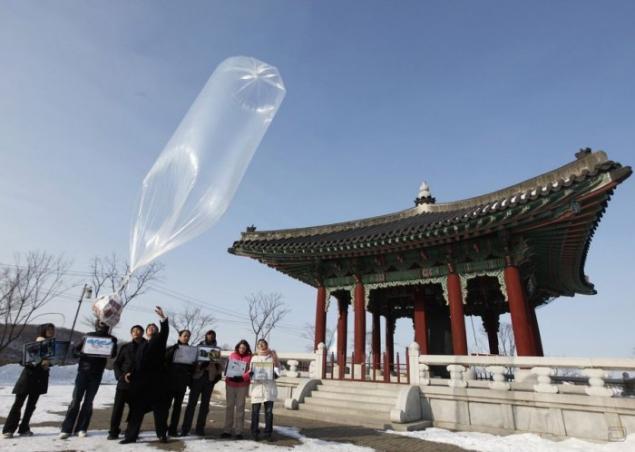
Launch zone balloons loaded with promotional materials across the demilitarized zone continues.
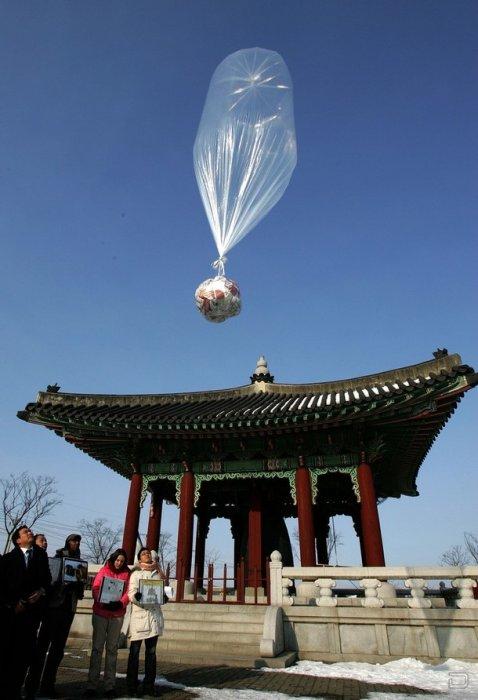
At this time, except for the South Korean activists leaflets also sent across the demilitarized zone load of candy.
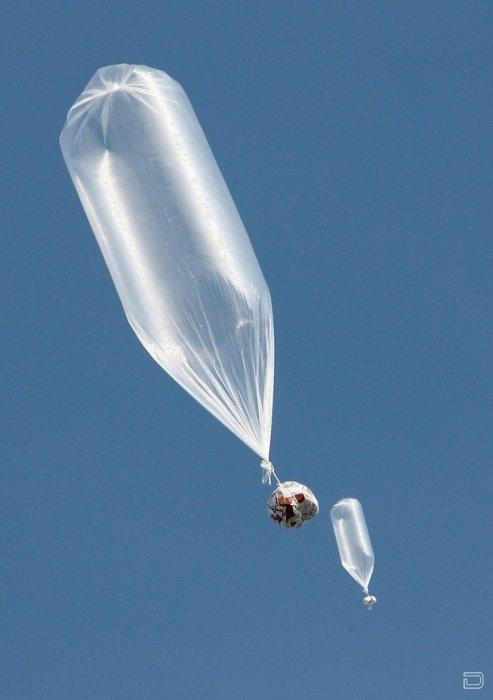
US special envoy on human rights in North Korea, Robert King, who is currently on his first visit to South Korea, said that "the signing of the peace agreement is extremely important in order to stop the current state of war that is the cause of hostility" between the official Pyongyang and the US.
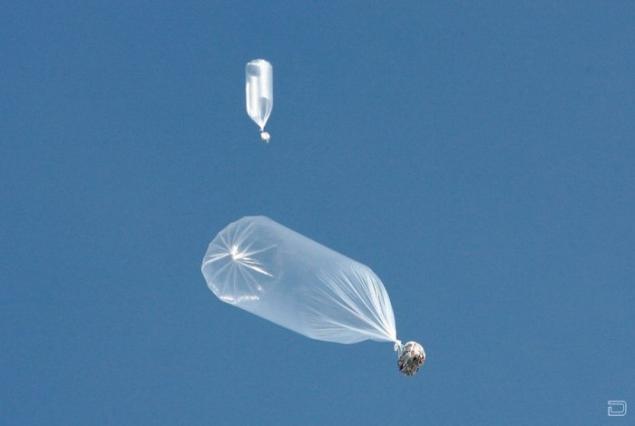
Western countries have expressed concern about the "serious violations of human rights" in North Korea, citing reports of executions, torture, the presence of political prisoners and the use of child labor.


Activists have launched into the sky balloons filled with leaflets and confectionery. (Reuters)

The action participants were encouraged to "unite the two Koreas and put an end to the genocide of the North Korean people» (Reuters)

Such actions are carried out in the area of the demilitarized zone on a regular basis, causing great discontent in the ruling circles of North Korea. (Reuters)

North Korea requires Seoul not to run balloons that a number of South Korean NGOs regularly sends to North Korea. (Reuters)

With these balls fall to the north, hundreds of thousands of propaganda leaflets. In them - a sharp criticism of the policies of the DPRK leadership, calling for the overthrow of Kim Jong Il and a detailed list with the names of nearly 500 citizens of South Korea, which is believed to be at different times have been abducted by the authorities of the DPRK.

Late last year, the North Korean newspaper "Chosun Mingzhu" clearly hinted: spreading leaflets can cause "random" armed clashes on the inter-Korean border, which may result in a full-scale military conflict, including nuclear war.

Ministry of Unification of the Republic of Korea has asked civil society organizations of the South not to throw leaflets into North Korea. But they did not heed the request.

Launch zone balloons loaded with promotional materials across the demilitarized zone continues.

At this time, except for the South Korean activists leaflets also sent across the demilitarized zone load of candy.

US special envoy on human rights in North Korea, Robert King, who is currently on his first visit to South Korea, said that "the signing of the peace agreement is extremely important in order to stop the current state of war that is the cause of hostility" between the official Pyongyang and the US.

Western countries have expressed concern about the "serious violations of human rights" in North Korea, citing reports of executions, torture, the presence of political prisoners and the use of child labor.

